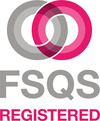Helping Enterprise IT Support the Modelling Community
We recognise the role that enterprise IT plays in supporting the financial modelling community, both in development and operational environments. IT support is often fundamental to the stability, productivity and success of the entire modelling enterprise.
We are making significant efforts to make the Mo.net platform as simple, efficient and robust to install, configure, upgrade, and support in even the most complex environments. And if things do go wrong, we want to make sure the cause is quicky identified and a solution found, minimisng any potential downtime for the user community.
Architecture
The foundation of Mo.net is the Microsoft .NET Framework. This provides a scalable and robust industry-standard platform appropriate to meet the needs of a modern insurance enterprise. It also means that Mo.net models & calculations have a very light footprint, allowing them to be easily distributed across the enterprise as web services, APIs or independent libraries.
Mo.net is the only service-oriented financial modelling platform. This architecture provides immense flexibility and control, whether using the platform on-premise, in the cloud, or in a hybrid environment.
Enterprise Integration
The primary differentiator of the Mo.net platform compared to legacy financial modelling systems is the ability to integrate models & calculations developed by actuaries / risk managers into the wider insurance ecosystem. This allows logic to be developed & validated by appropriate resources, but consumed by users & enterprise systems outside of the actuarial / risk function - e.g. websites, mobile apps, business intelligence tools and policy administration systems. Naturally the Mo.net platform can integrate with a huge variety of operational / transactional database platforms to source data & assumptions, either using native connectors or third party drivers.
We've recently extended the platform to allow models & calculations to be compiled silently as part of an end-to-end process. This allows end-users to be removed from the critical path of deploying models into a live environment. What's more is that traditional service management systems, such as SCOM or Splunk can be used alongside the Mo.net platform to make the challenge of supporting the user community as simple as possible.
Scalability
While the Mo.net calculation kernel offers unrivalled levels of performance, there are many situations when results are required even more rapidly. Mo.net offers a range of workload distribution options - including third party clustering solutions such as Micorosoft HPC Server or Azure cloud resources - to satisfy specific customer requirements. These options can be deployed on-premise, in the cloud, or in a hybrid environment, providing customers with unrivalled levels of flexibility.
Governance & Security
Robust governance and security is at the heart of the Mo.net platform. This includes the model / calculation development environment, which has traditionally been difficult to control. By adopting industry-standard configuration management solutions such as TFS or Azure DevOps, end-to-end governance can finally be applied to the financial modelling landscape. Furthermore, the Mo.net platform can integrate with on or off-premise Active Directory instances (with or without SSO), providing seamless control / governance of the entire platform.
In the operational environment Mo.net Enterprise Services can use industry-standard encryption protocols to ensure senstive information is always protected.
Technical Support
For major client implement projects we will assign a dedicated Client Implementation Manager to help you achieve your objectives. They will work closely with both business and IT to ensure the implementation of your Mo.net platform goes as smoothly as possible.
Financial Supplier Qualification
Since 2018 we have been FSQS accredited and thrilled to have passed the accreditation once again.
What is FSQS?
The Hellios Financial Supplier Qualification System (FSQS) is a common register of standardised, validated, structured and comprehensive vendor/third party information. FSQS is an accreditation tool used by leading financial organisations such as Lloyds Banking Group, Metro Bank, Santander, AIB, Arbuthnot Latham, TSB, VirginMoney, Bank of Ireland, Schroders, RSA, and the Bank of England. It essentially takes away the need to complete and update due diligence on new and existing suppliers and partners, as every business will have already completed this as part of their FSQS accreditation.
Accreditation requires suppliers to be audited against FSQS requirements in the areas of: Business continuity, Financial, Insurance, Health & Safety, IT and Information Security, Anti-Bribery, Recruitment, Operational Risks, Fraud, Responsible Business Governance and Records Management, Environmental and Sustainability which are all key elements to demonstrate our robust GDPR Compliance. Software Alliance's FSQS Certificate can be viewed here.
Why did and do we continue to do this?
Our qualification within this system gives Software Alliance's existing partners an enhanced level of reassurance, whilst also opening the door for us to work with other leading financial services organisations. It also demonstrates our commitment to excellence in all areas of compliance, as well as providing further proof that Software Alliance is a trusted name in the financial sector.
As financial regulations become increasingly more complex, it’s vital that businesses within this sector, are able to implement a consistent and standardised approach to the selection and onboarding of new suppliers and partners. The FSQS accreditation is valued by some of the largest purchasers in the financial industry, including the Bank of England.
Our business customers and referral partners can be safe in the knowledge that we adhere to all compliance, risk and regulatory management processes required by the leading financial institutions in the UK.


